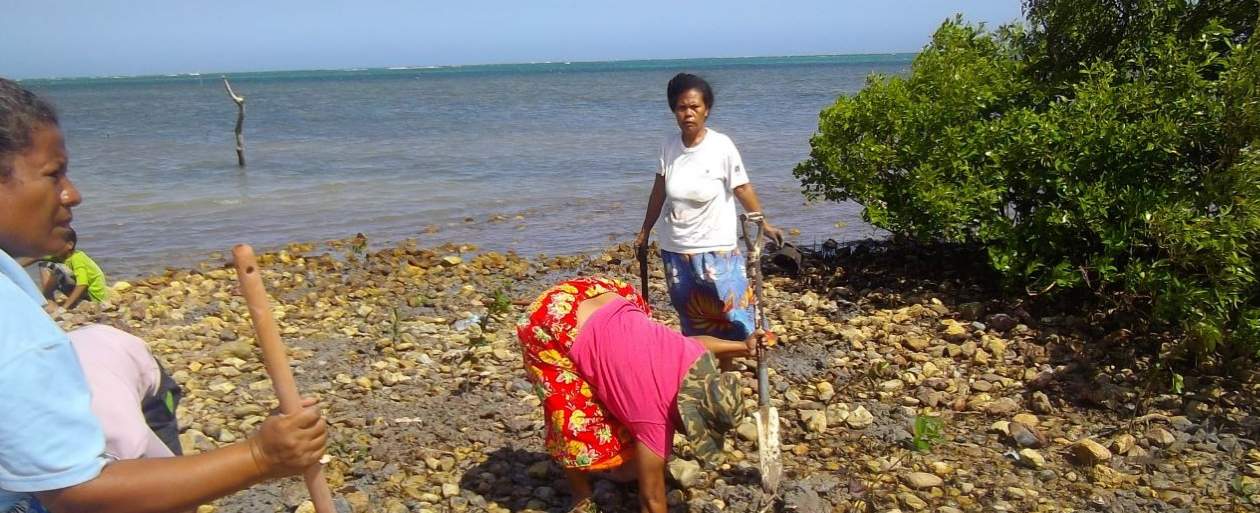
By Julie Dugdale, freelance journalist. Excerpted from “Our Voices, Our Environment: The State of Funding for Women’s Environmental Action”
Mangroves are an invaluable part of Papua New Guinea’s coastal communities and marine ecosystems. The carefully evolved root system of a mangrove forest provides a habitat for fish and wildlife that support local livelihoods, like those in Papua New Guinea’s Pari village.
Mangroves also play a critical role in protecting communities from the harmful effects of climate change, like flooding from rising sea levels, which threaten both the balanced ecosystem and traditional ways of life in coastal villages.
The problem? These forests, so essential in mitigating and adapting to the havoc wreaked by climate change, are being overharvested and depleted for firewood and construction.
In Pari village, eleven species of mangroves have been reduced to just five. The consequences of this decimation are dire not only for the health of the local economy and survival of coastal villages as fish disappear from the ravaged mangrove areas, but also for the bigger picture. Mangroves store two to four times more carbon than tropical rainforests. When they are cut down, they release dangerous amounts of greenhouse gases into the atmosphere. It’s a daunting statistic, but reversible thanks to the efforts of groups like the Pari Women’s Development Association.
This coalition of women – the only women’s group that belongs to Papua New Guinea’s Eco-Forestry Forum – was formed in 2003 to pursue social and environmental justice in Pari village. Their rehabilitation efforts include community training, education, forest protection, and mangrove reforestation.
With two waves of funding from Global Greengrants, the group mobilized hundreds of women, men, and children to restore an area of mangrove forest along the coast and launch an awareness campaign about the importance of mangroves in protecting the community and ecosystem from dangerously high sea levels due to climate change.
The two grants allowed the women to purchase over 500 mangrove seedlings, receive training on which species of mangroves thrive in different zones, and establish a monitoring system to ensure the health and sustainability of the mangrove plantations.
The organization’s efforts have earned the women local and regional recognition as environmental leaders. Climate change is jeopardizing an entire way of life, and the women of Pari Women’s Development Association have identified the mangrove as a natural resource critical to preserving their homes and livelihoods.
“Women are standing up for the mangroves we have neglected for so long,” said Konio Henao, former acting president of the organization. “We want to transform our environment, protect ourselves from climate change, and develop our livelihoods for a better, beautiful future.”
